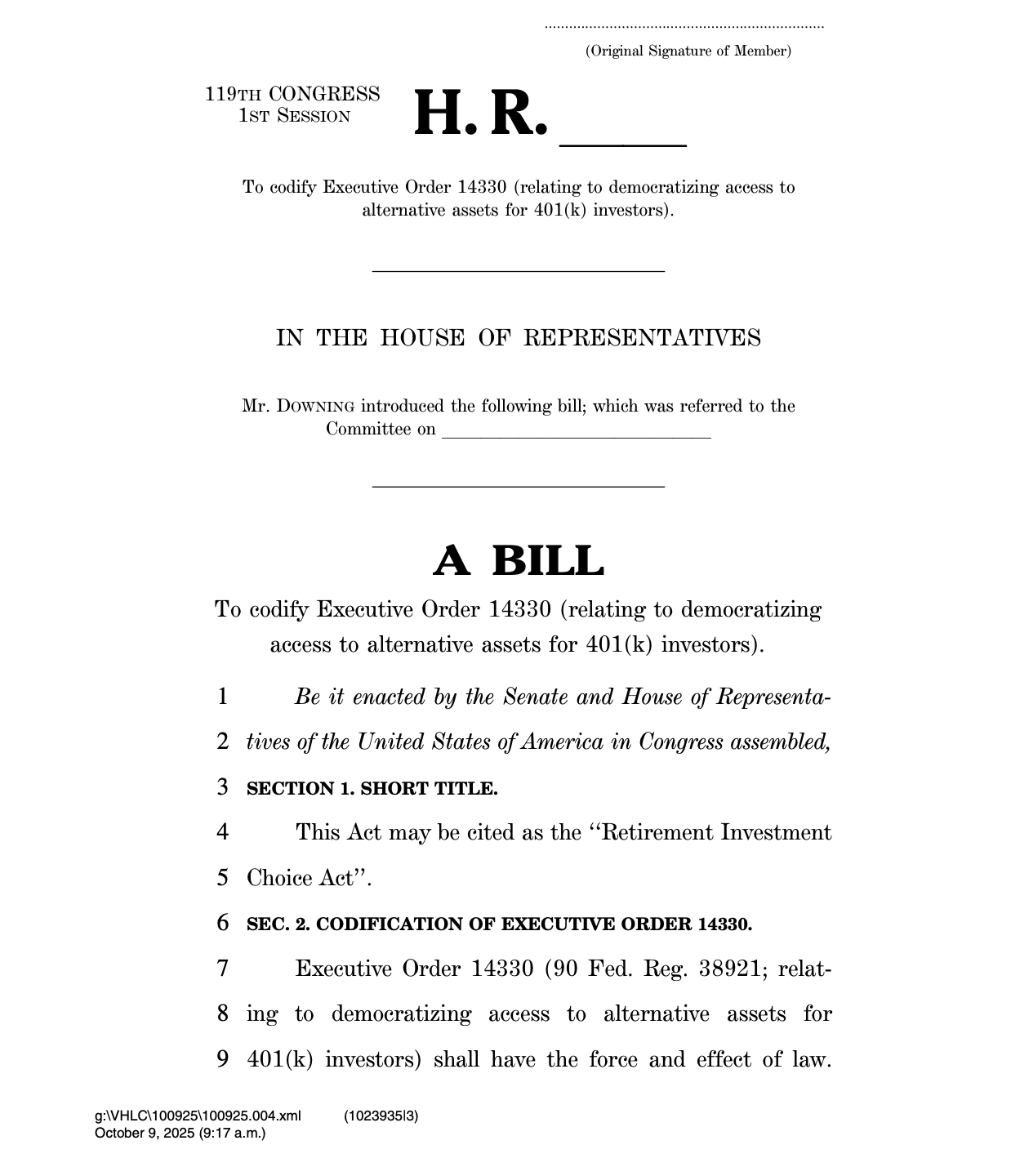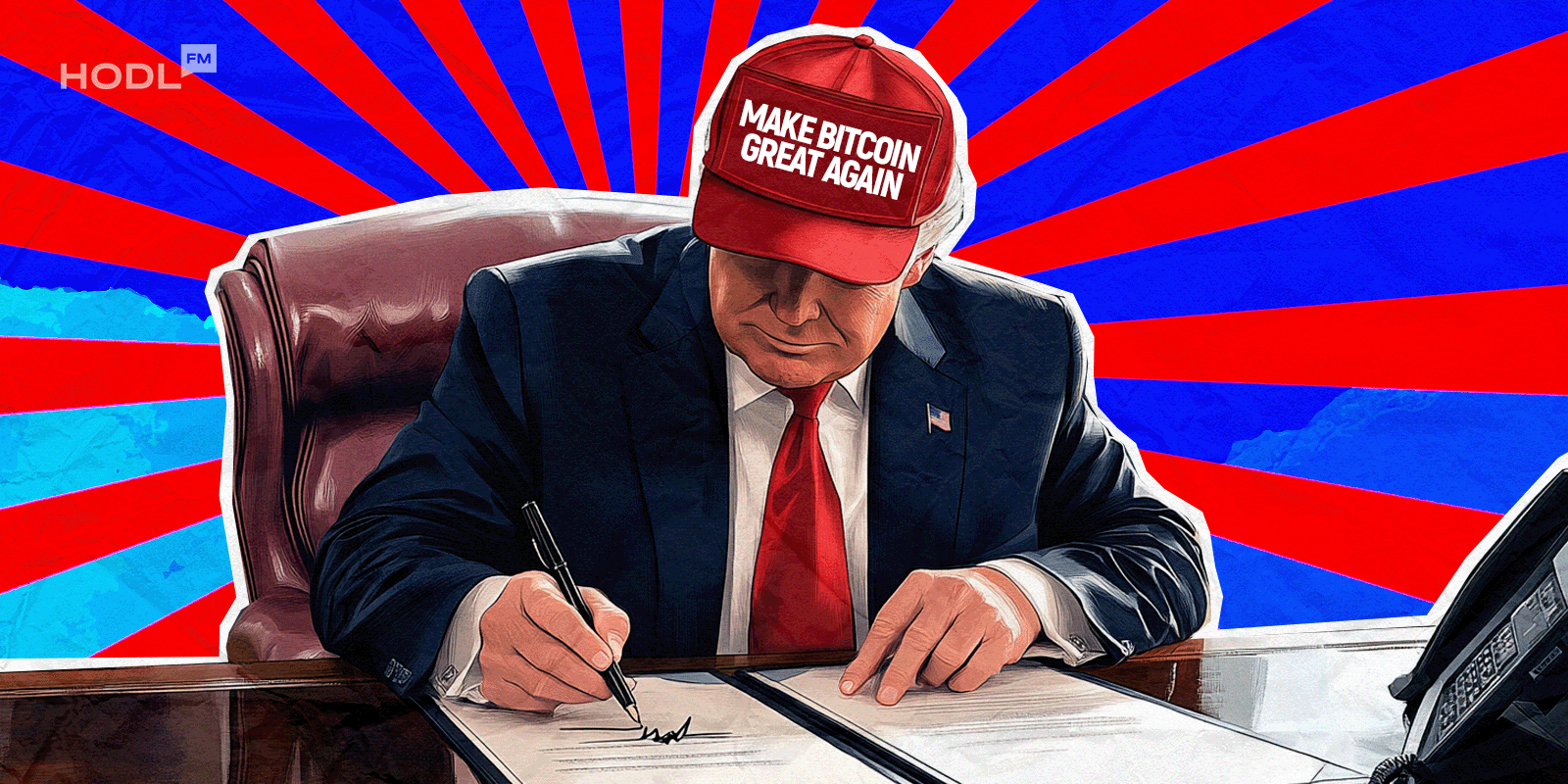Key Republican lawmakers are backing the Trump administration’s effort to open American retirement accounts to a new class of investments, including cryptocurrencies, private equity, and other so‑called alternative assets.
The policy stems from President Donald Trump’s Executive Order 14330, signed on August 7, which directs the Department of Labor (DOL) and the Securities and Exchange Commission (SEC) to explore ways to allow 401(k) and similar employer‑sponsored plans to include alternative assets. These may include digital currencies such as bitcoin, private market investments, real estate, commodities, and infrastructure projects.
House Republicans voice support
A group of nine GOP lawmakers, led by House Financial Services Committee Chairman French Hill (R‑Ark.) and Capital Markets Subcommittee Chair Ann Wagner (R‑Mo.), wrote to SEC Chair Paul Atkins expressing support for the Executive Order.
“We applaud the EO’s policy ‘that every American preparing for retirement should have access to funds that include investments in alternative assets when the relevant plan fiduciary determines that such access provides an appropriate opportunity… to enhance the net risk‑adjusted returns,’” the lawmakers wrote.
Their letter encouraged the SEC to collaborate with the Labor Department in revising regulations to expand these investment options, adding that such actions could help “the 90 million Americans that are currently restricted from investing in alternative assets to secure a dignified, comfortable retirement.”
The lawmakers also urged the SEC to review bipartisan legislation under consideration in the 119th Congress that could adjust accredited‑investor rules to facilitate broader participation.
Labor Department implements Trump’s order
Following the order, the Labor Department issued an advisory opinion stating that lifetime‑income investment options can qualify as default choices under the Employee Retirement Income Security Act (ERISA). The agency simultaneously rescinded a 2021 Biden‑era guidance that had discouraged fiduciaries from including alternative assets in 401(k) menus.
Labor Secretary Lori Chavez‑DeRemer said:
“The Department of Labor is continuing to take swift steps to implement President Trump’s Executive Order. Today’s Advisory Opinion is another step forward towards our goal of giving plan fiduciaries the flexibility to design retirement investment strategies that meet the needs of American workers.”
Rep. Troy Downing introduced a bill to codify the executive order.
Separately, Rep. Troy Downing (R‑Mont.) introduced the Retirement Investment Choice Act, which would give Executive Order 14330 the “force and effect of law.”
The bill, reported by Bloomberg Law, embeds Trump’s directive into statute, permanently authorizing plan administrators to open 401(k)s to alternative holdings, including crypto‑focused funds.
“Alternative investments hold the transformative potential to supercharge the financial security of countless Americans saving for retirement,” Downing said in a statement. “I applaud President Trump for his leadership to democratize finance and am proud to be leading the effort in Congress to codify his EO.”
The bill’s introduction came amid a partial government shutdown, an unusual context that nevertheless allows members to submit legislation.
If enacted, the legislation would lock in the order’s key provision: giving fiduciaries discretion to include alternative assets in retirement portfolios when deemed suitable.
Industry advocates such as Brian Graff, CEO of the American Retirement Association, voiced support, arguing that “professional retirement plan fiduciaries, not the federal government, are in the best position to assess what is in the financial best interest of participants.”

Expert reactions and market impact
Economists and investment professionals note the policy could significantly reshape the $12.5 trillion defined‑contribution retirement market.
According to CBS News, President Trump said he wants to “democratize retirement” by giving workers access to assets “outside stocks and other traditional investments, such as private equity and cryptocurrencies.”
Supporters argue that private equity and digital assets can offer diversification and potentially higher returns. Simon Tang, head of U.S. at Accelex, told CBS News that private equity “has matured into a strong‑performing asset class delivering excellent long‑term returns.”
However, experts have also cautioned against the higher volatility and opacity of such investments. Pitchbook analysts wrote that although “asset managers are salivating over the idea of tapping into a portion of the $12.5 trillion in defined contribution assets,” adoption could be “slow due to cost, transparency and complexity.”
The DOL now has 180 days to draft formal guidelines, but progress may be delayed by the ongoing staffing and funding issues at the Employee Benefit Security Administration.
The road ahead
For the Trump administration and its congressional allies, the initiative is part of a broader financial‑policy agenda that emphasizes personal choice and reduced regulatory constraints in retirement planning.
Downing’s bill, still in committee, faces an uncertain path. Democrats have expressed reservations about expanding crypto access in retirement savings, citing volatility and investor‑protection concerns. No Senate companion measure has yet been introduced.
Still, as Fox Business and Politico reported, the Republican‑led push underscores a growing belief within the party that bitcoin and digital assets could play a role in America’s retirement future.

Disclaimer: All materials on this site are for informational purposes only. None of the material should be interpreted as investment advice. Please note that despite the nature of much of the material created and hosted on this website, HODL FM is not a financial reference resource, and the opinions of authors and other contributors are their own and should not be taken as financial advice. If you require advice. HODL FM strongly recommends contacting a qualified industry professional.





